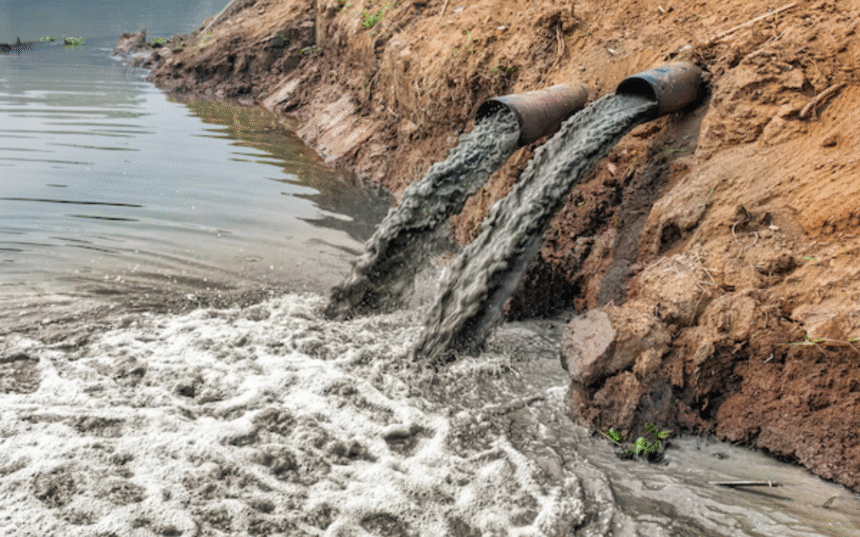Karachi : According to the Sindh Environmental Protection Agency (Sepa), a total of 417 million gallons per day (MGD) of untreated domestic effluent and 80 MGD of untreated industrial wastewater are being discharged into the sea and coastal areas of Karachi due to inadequate sewage and wastewater treatment facilities.
The agency presented this information to the Sindh High Court in response to a petition against the dumping of sewage and industrial waste into the sea.
Globally, 2.1 billion people lack access to clean water to drink. PCRWR
The Sepa director general informed the court that the dumping of untreated water is having an adverse effect on the marine ecosystem.
The director general stated that 55 MGD of domestic effluent is treated at treatment plants, but presently 417 MGD of untreated sewage is still being discharged into the sea.
Agency to Crack Down on Water Wastage in Islamabad
He also mentioned that around 104 MGD of wastewater is generated by seven industrial zones of Karachi, out of which 80 MGD of untreated water is being dumped into the sea. However, the Sindh government has initiated projects for combined effluent treatment plants at various industrial zones in the city and has agreed to release funds for the completion of these projects within a specified period of time.
The director general also said that the Sindh government has undertaken an initiative to upgrade treatment plants to enhance their capacity to treat municipal waste, but no progress has been made so far to implement the court’s directions.
Regarding the discharge of untreated domestic effluent from DHA, the director general informed the court that DHA generates 8 MGD of sewage, which is treated at two treatment plants at the Golf Club and Qublai Khan.
However, the capacity of these plants is limited to 2.4 MGD and 2 MGD respectively, resulting in the disposal of 3.33 MGD of sewage without treatment into the sea.
The director general suggested that all treatment plants and combined effluent treatment plants at industrial zones be completed as soon as possible and that environmental laws be enforced to control wastewater pollution.
After taking the Sepa report on record, a division bench of the high court directed the Sepa director general to inspect the Golf Club sewage treatment plant and file a progress report on other treatment plants in the city on the next hearing.
Earlier, the SHC had directed Sepa to carry out an inspection in the Sea View area near private restaurants to ascertain from how many places industrial waste and untreated sewage were being discharged into the sea.
The petitioners, including the World Wide Fund for Nature-Pakistan, Citizens for Better Environment (Shehri – CBE), and the Pakistan Animal Welfare Society,  had approached the SHC seeking an injunction against the release of industrial waste and untreated sewage into the sea.
had approached the SHC seeking an injunction against the release of industrial waste and untreated sewage into the sea.
Their counsel had stated that the acts and omissions of the civic agencies were not only destroying marine life and disturbing the ecological balance, but their oversight was also affecting the health of citizens who visited the beach for recreation purposes.
They also argued that the sea was being polluted by sewage and requested the high court to direct the civic agencies to take steps for cleanliness of the beaches and ensure that sewage and industrial waste was not discharged into the sea.











